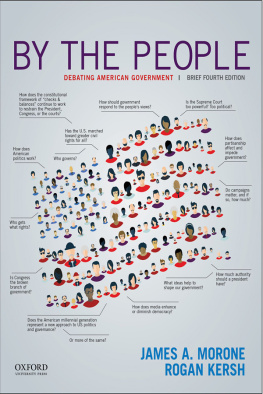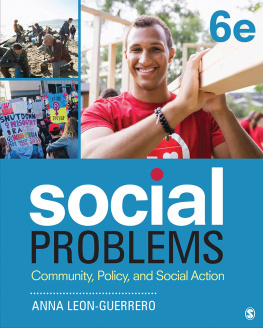Leonard A. Steverson - Debating social problems
Here you can read online Leonard A. Steverson - Debating social problems full text of the book (entire story) in english for free. Download pdf and epub, get meaning, cover and reviews about this ebook. year: 2019, publisher: Routledge, genre: Politics. Description of the work, (preface) as well as reviews are available. Best literature library LitArk.com created for fans of good reading and offers a wide selection of genres:
Romance novel
Science fiction
Adventure
Detective
Science
History
Home and family
Prose
Art
Politics
Computer
Non-fiction
Religion
Business
Children
Humor
Choose a favorite category and find really read worthwhile books. Enjoy immersion in the world of imagination, feel the emotions of the characters or learn something new for yourself, make an fascinating discovery.

- Book:Debating social problems
- Author:
- Publisher:Routledge
- Genre:
- Year:2019
- Rating:3 / 5
- Favourites:Add to favourites
- Your mark:
- 60
- 1
- 2
- 3
- 4
- 5
Debating social problems: summary, description and annotation
We offer to read an annotation, description, summary or preface (depends on what the author of the book "Debating social problems" wrote himself). If you haven't found the necessary information about the book — write in the comments, we will try to find it.
Debating social problems — read online for free the complete book (whole text) full work
Below is the text of the book, divided by pages. System saving the place of the last page read, allows you to conveniently read the book "Debating social problems" online for free, without having to search again every time where you left off. Put a bookmark, and you can go to the page where you finished reading at any time.
Font size:
Interval:
Bookmark:

Jennifer E. Melvin

by Routledge
711 Third Avenue, New York, NY 10017
2 Park Square, Milton Park, Abingdon, Oxon, OX14 4RN
Names: Steverson, Leonard A., author. | Melvin, Jennifer E., author.
Title: Debating social problems / Leonard A. Steverson & Jennifer E. Melvin.
Description: 1 Edition. | New York: Routledge, 2018. |
Includes bibliographical references and index. |
Identifiers: LCCN 2018013443 (print) | LCCN 2018015773 (ebook) |
ISBN 9781315143446 (Master Ebook) | ISBN 9781351388665 (Web pdf) |
ISBN 9781351388658 (ePub) | ISBN 9781351388641 (Mobipocket) |
ISBN 9781138309609 (hardback) | ISBN 9781138309616 (pbk.) | ISBN 9781315143446 (ebk)
Subjects: LCSH: Social problems. | Critical thinking.
Classification: LCC HN18.3 (ebook) | LCC HN18.3 .S84 2018 (print) | DDC 306dc23
LC record available at https://lccn.loc.gov/2018013443
by Apex CoVantage, LLC
- CHAPTER 2 Work and the Economy
- CHAPTER 3 Government and the Political System
- CHAPTER 4 The Educational System
- CHAPTER 5 The Family
- CHAPTER 6 Sex and Gender
- CHAPTER 7 Sexuality
- CHAPTER 8 Race and Ethnicity
- CHAPTER 9 Deviance and Crime
- CHAPTER 10 Alcohol and Other Drugs
- CHAPTER 11 Health Care
- CHAPTER 12 Terrorism and War
- CHAPTER 13 Population
- CHAPTER 14 The Environment and Urbanization
- CHAPTER 15 Globalization
- CHAPTER 2 Work and the Economy
- CHAPTER 3 Government and the Political System
- CHAPTER 4 The Educational System
- CHAPTER 5 The Family
- CHAPTER 6 Sex and Gender
- CHAPTER 7 Sexuality
- CHAPTER 8 Race and Ethnicity
- CHAPTER 9 Deviance and Crime
- CHAPTER 10 Alcohol and Other Drugs
- CHAPTER 11 Health Care
- CHAPTER 12 Terrorism and War
- CHAPTER 13 Population
- CHAPTER 14 The Environment and Urbanization
- CHAPTER 15 Globalization
- i
Understanding Social Problems through Debate
- Application of Sociological Knowledge
- Debate
- Social Problems
- Sociological Imagination
Font size:
Interval:
Bookmark:
Similar books «Debating social problems»
Look at similar books to Debating social problems. We have selected literature similar in name and meaning in the hope of providing readers with more options to find new, interesting, not yet read works.
Discussion, reviews of the book Debating social problems and just readers' own opinions. Leave your comments, write what you think about the work, its meaning or the main characters. Specify what exactly you liked and what you didn't like, and why you think so.











